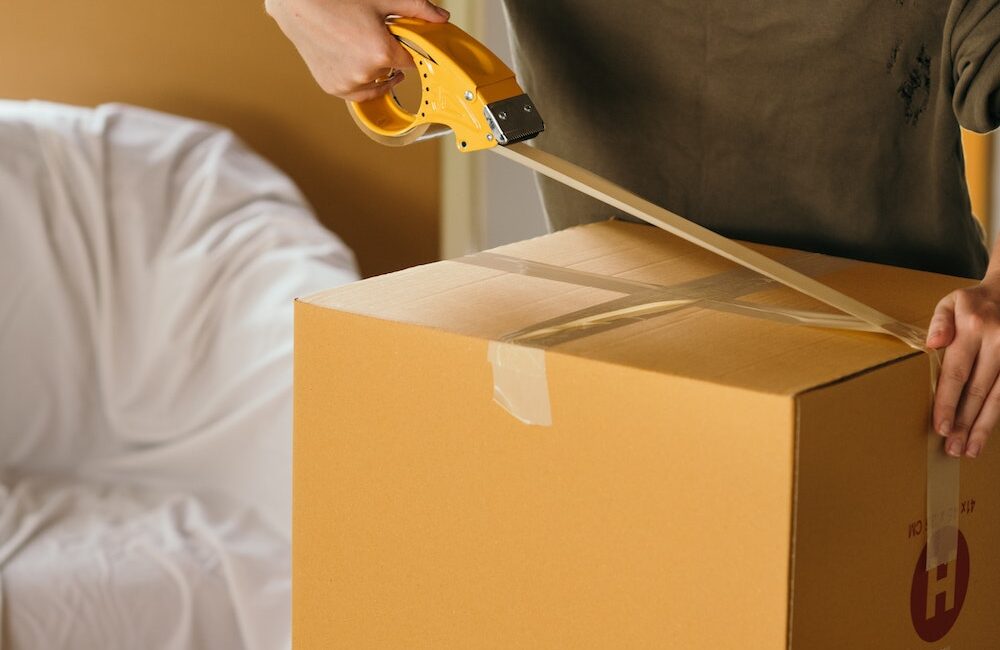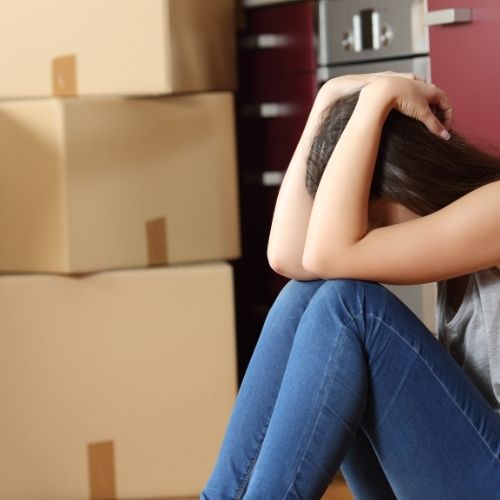Relocation depression is a real thing. A 2016 study on young people under the age of 30, in the Netherlands and Germany show that those who had recently relocated experience a dip in feelings of well-being.
This isn’t full blown clinical depression. But data shows people generally feel down after moving to a new place. It just so happens you are more likely to encounter more triggers for depression when you move to a new place.
Your social life changes, you have new neighbors and may not know anybody. Your leisure activities may change, like hobbies and exercise. Your commute to work or school is now different. There’s a lot to get used to, and you’re more vulnerable to many new stresses.
For many people, a new location puts them on the defensive. It’s a very primitive animal instinct that helps us survive. If you’re feeling a little stressed, it’s nothing unusual. Younger people and children are more susceptible to relocation depression, as big life changes make a bigger impression on their psyche.
An Australian study reports 30% – 50% of adults regret moving. Many studies on migrants in Finland, Austria, and the UK have found the same: most movers are not happy about moving.
Calm the Chaos
Nothing is settled yet, your things may still be in their boxes. On top of that, you are more likely isolated from your old social networks. To get a handle on relocation depression, the first thing you can do is make your space livable for you.
Get comfortable in your own personal space. You can do this with some quick home decorating. Make your rest place, such as the living room couch and your bedroom, the first areas that get fixed up.
Assemble the bed and mattress, set up the couch and television or computer. Whatever you need to destress and unwind, will be your priority.
No matter how chaotic the outside world gets, you’ll have a place to comfortably rest.
Beef Up Security
A few measures will make you feel safer in a strange place. Make sure the windows and doors are secure. Check the locks or add even more locks. Make sure all the windows can be locked as well.
Ask your landlord and your neighbors about the crime rate in your area. Neighbors are particularly helpful. They’ll tell you the safest routes to jog, what areas to avoid and where to go if something goes wrong.
Get all your emergency numbers in order. Get specific contact numbers for your area, including clinics, fire station, and police station or outpost. Collect as much information as you can about your new area, as more information means more security. It also prepares you for any emergency.
Slowly Rebuild Your Social Networks
You no longer have your old support systems in place. So any psychological blow will feel ten times more unbearable. This only makes negative feelings like depression, anxiety and regret much worse.
Rebuild your social networks where you live now, to ease your transition to a new location. Don’t pressure yourself to form close relationships too quickly. Instead, aim for a wide selection of new acquaintances related to your work, neighborhood, interests and hobbies.
Over time, you’ll make closer friends.
Take Care of Your Physical Health
Any kind of life disruption is best to be met by a strong and healthy body. So while you’re at this awkward place, don’t forget to prioritize your health. Eat well and get enough sleep.
This is not time to go on a new diet or lose massive amounts of weight. Delay your weight loss plans another time, after you’ve overcome relocation depression.
Sleep is particularly important. If you have difficulty sleeping in a new place, most people do, consider some coping techniques. A night light may help. Sleeping with someone for companionship (not sex) helps the body relax and makes it easier to fall asleep.
Regular exercise also helps. Go outside and get some sun for 20 minutes in the early morning before 10 am or in the afternoon after 3 pm, to avoid the heat. Sunlight improves mood and lifts the spirits. It also helps readjust your eyesight if you spend all day in front of a computer.
Build a Routine
A routine helps people feel more calm. It works for infants and it works for adults in distress. If you’ve never had a routine before, start small. Eventually you’ll establish a morning routine to start your day and an evening routine to wind down.
Your morning routine could be basic hygiene, you can fold your beddings, vacuum the floors, shower and eat breakfast. You can go further with a morning jog or a short yoga practice. If you live with your family, create a routine that is just for you, apart from the family activities. For instance you can peacefully enjoy a coffee in bed, without the kids.
Design your own routine and do it everyday in the same order at the same time. Eventually it will become a habit and you won’t even have to think about it.
Relocation depression goes away with time, and you’ll eventually adapt to your new home. Remember there is an adjustment period. If you miss family or miss home, take short visits home. Make constant calls and keep in touch with your old life if you miss it.







